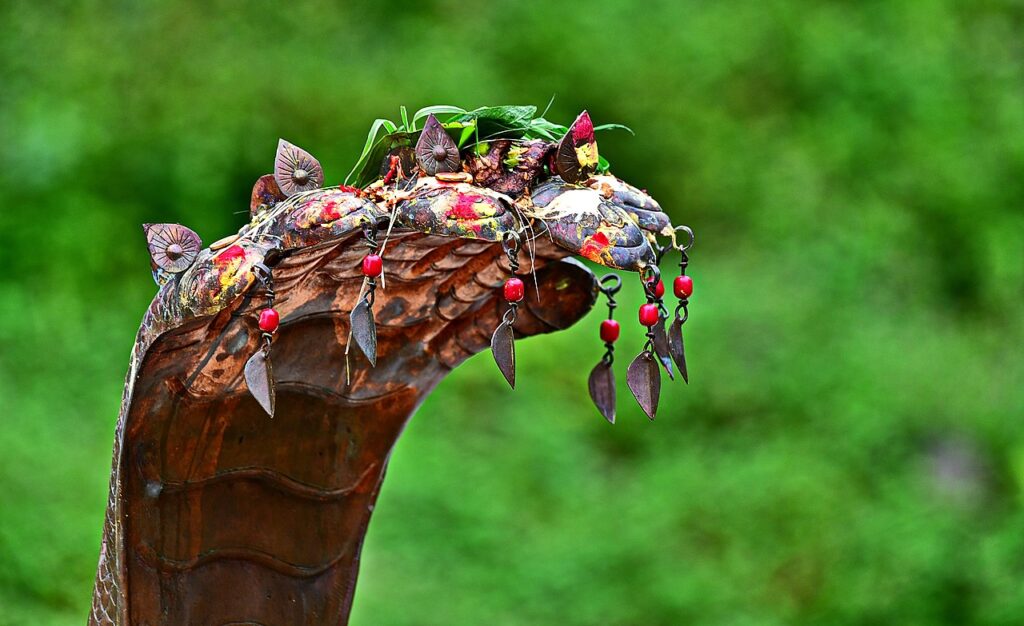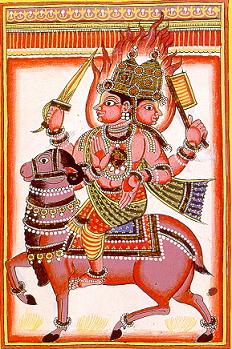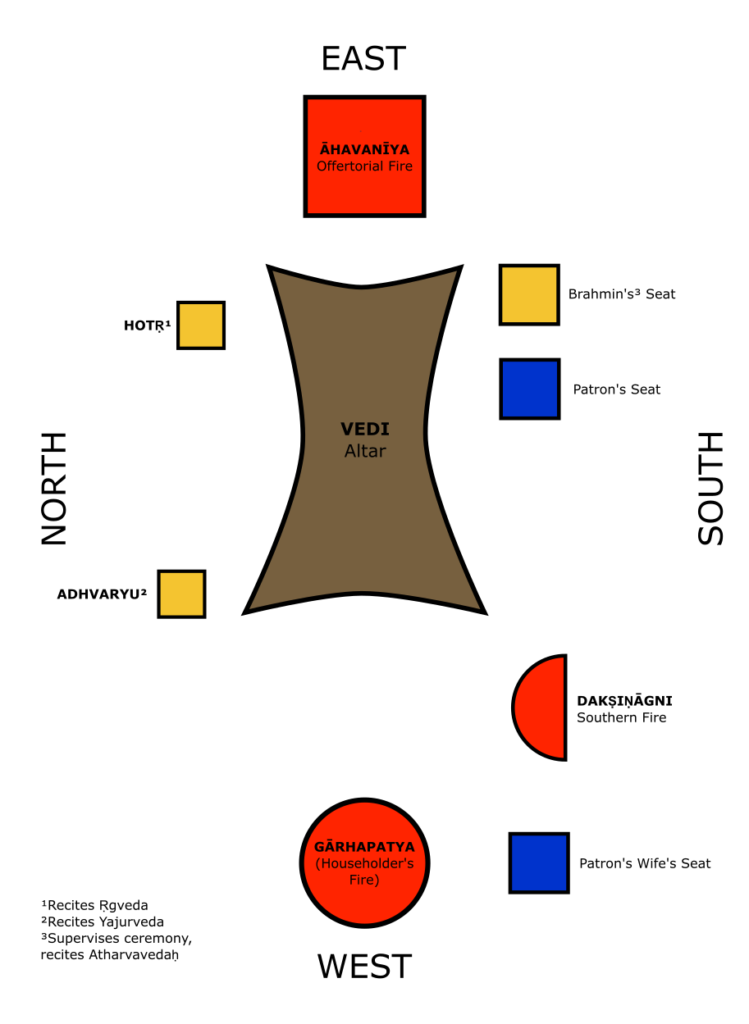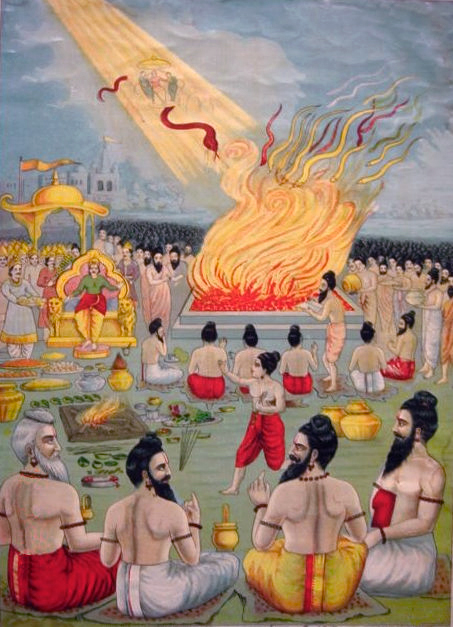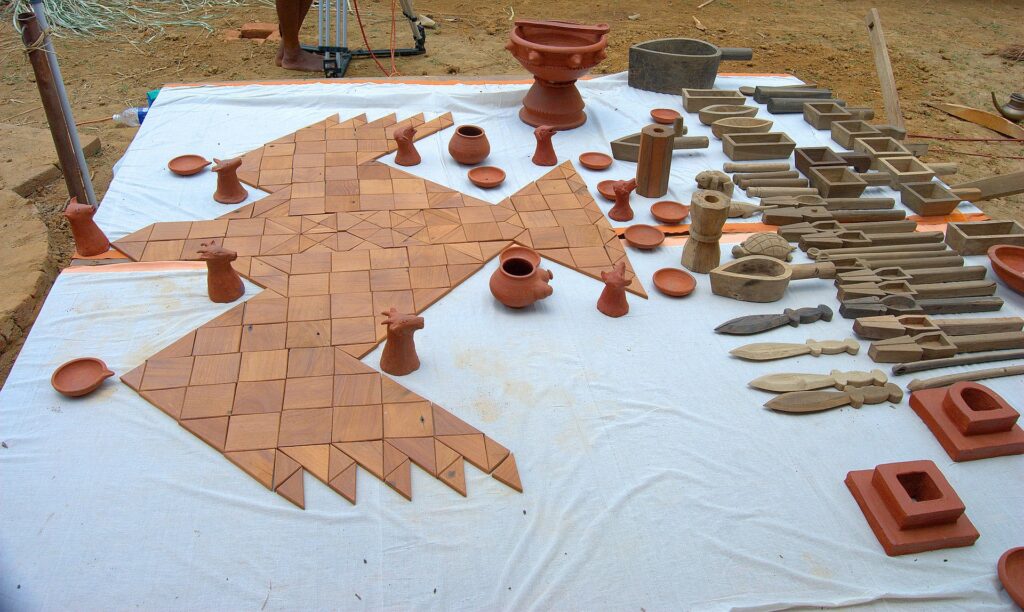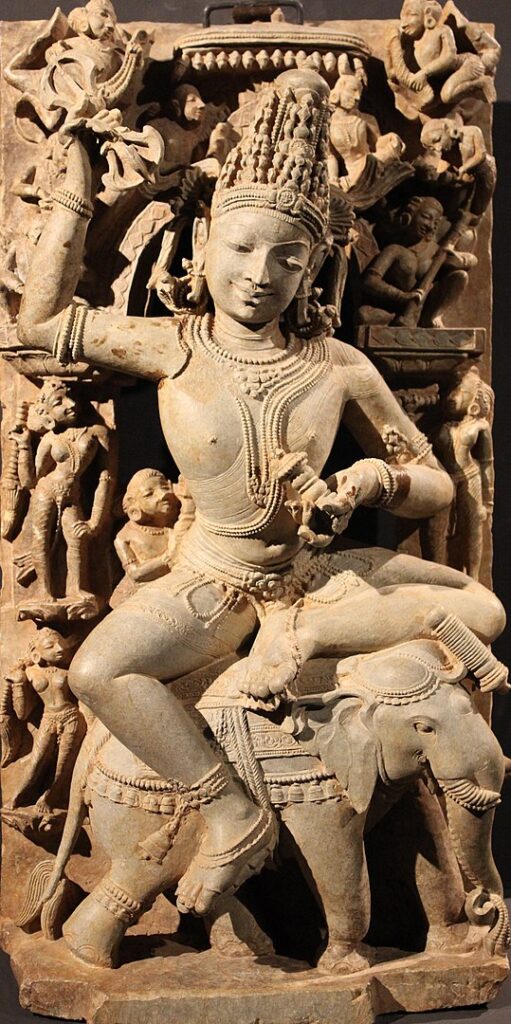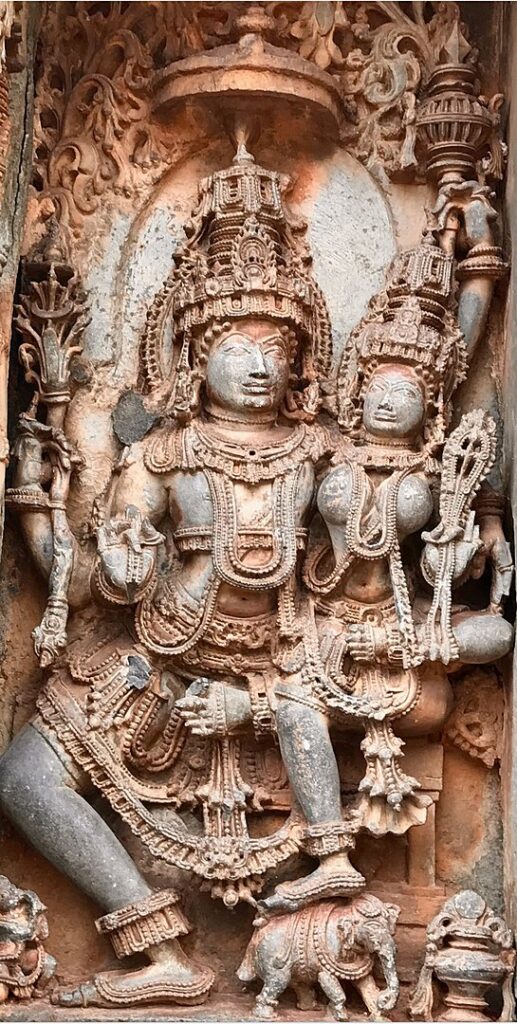
Table of Contents (The Complete Mahabharata in Simple English)
Previous Post: Astika Asks For His Boon
| Note: In the previous post, Astika asked Janamejaya to end the snake sacrifice. Takshaka was close to the sacrificial fire but had not yet been captured. This put Janamejaya in a dilemma because destroying Takshaka was the chief aim of his sacrifice. In this post, we will find out if Janamejaya granted the boon to Astika and what happened to Takshaka |
Upon being repeatedly urged by the Sadasyas of the sacrifice, Janamejaya agreed to grant Astika’s boon. He said, “Let the sacrifice end. Let the snakes be safe. May Astika also be satisfied.” Then Janamejaya turned to the suta who had predicted that the sacrifice would be interrupted by a brahmin, and said, “O suta, may your prediction also come true.”
All the Sadasyas were filled with joy when Janamajeya granted Astika’s boon and stopped the sacrifice. The entire sacrificial compound was filled with words of praise for the king.
Janamejaya also felt pleased with the decision. He gave generous gifts to all the Sadasyas, Ritwiks, and other participants of the sacrifice. He also gave generously to the suta who had predicted that the sacrifice would be interrupted. Along with money, Janamejaya, the king of uncommon kindness, also gave other items of food and clothing to the suta. Janamejaya was very generous at heart and he felt happy after bestowing gifts on everyone present at the sacrifice.
After concluding the sacrifice with proper rites, he gave due respect and gifts to Astika and let the little brahmin return home. Astika himself was also very pleased because he had succeeded in protecting his maternal relatives. Before Astika left, the king said, “O Astika, I will soon conduct an Ashwamedh Sacrifice. You must come there as a Sadasya.” Astika readily agreed and returned home.
| Note: The discerning reader might have noticed that Takshaka was almost pulled into the flame when Astika asked for his boon. However, the boon was not granted immediately. Janamejaya urged Astika several times to reconsider the book and ask for something else. This much time was enough for Takshaka, who had already lost his consciousness to fall into the sacrificial fire. But yet he did not. In the next post, we will find out how Takshaka was saved from falling into the fire. |
Table of Contents (The Complete Mahabharata in Simple English)
Next Post: How Takshaka Was Saved



